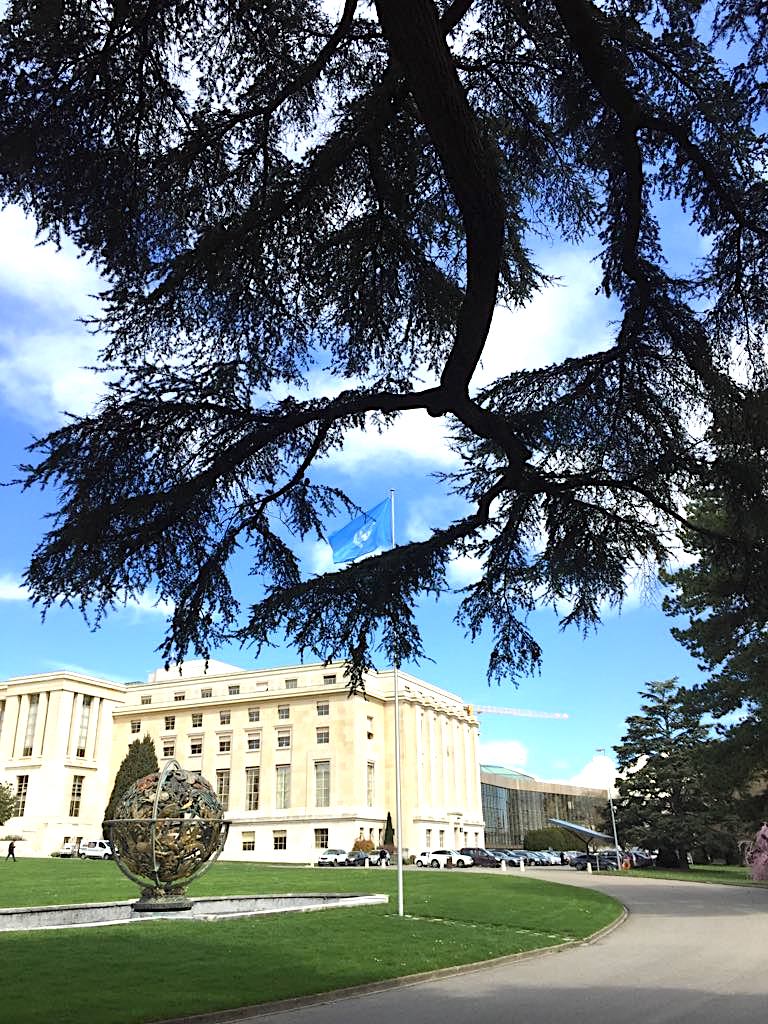Freedom of Religion or Belief - a fundamental right for every human being
Freedom of Religion or Belief - a fundamental right for every human being
An introduction to the international human rights framework
 Freedom of Religion or Belief (FoRB) is the right of each to choose and practice his/her religion. Rights of religious communities are also included under the FoRB framework.
Freedom of Religion or Belief (FoRB) is the right of each to choose and practice his/her religion. Rights of religious communities are also included under the FoRB framework.
About 77% of the world’s population live in contexts where their religious freedoms are restricted or severely restricted.
Baptists have a rich history in advocating for the religious rights of all people, based in our Christian convictions. The EBF engages in this work at the regional and international level. This article is the first in a series of posts on FoRB issues.
FoRB is a human right, protected under international law. The Stephanus Alliance highlights seven important dimensions of internationally protected freedom of religion and belief.
1. The freedom of each individual person to have, choose, and change a religion or belief is the central organizing right under the human rights FoRB framework. While absolutely protected under human rights law, it goes unrecognized or only partially recognized in many countries. In many cultures it is taboo to change religions, especially to a religion not traditionally associated with your nationality or ethnicity. Many countries maintain heresy and apostasy laws that punish persons for their deeply held religious beliefs, their change of religious beliefs, or their lack of piety as determined by the state or majority religion or culture.
2. The right to practice and live out a belief or religion follows logically from the first right. This means the right to practice a religion or belief in private or in public, alone or in community. Some related rights under this category include the right to establish and maintain houses of worship, the right to publish or distribute religious literature, the right to religious education, holiday observance, and the right to maintain charitable or humanitarian organizations that serve the broader society.
3. Freedom from coercion means that all people have the right not to be coerced into adopting or renouncing a religious belief.
4. Freedom from discrimination means that it is forbidden to discriminate against a person in any way based on their religious belief, or lack thereof. Discrimination based on religion leads to lack of access to education, jobs, and healthcare for many people around the world.
5. Rights of parents and guardians and rights of the child pertains to the right of parents to raise their child in accordance with their own religion or ideals. The government may not decide what religion parents may pass onto their children, nor should they prohibit or religious education in any way, or force children into religious observance in schools.
6. The right to corporate freedom and legal recognition involves the right to form a legal entity, and the rights of a religious community to hold property in common and provide religious education.
7. The right to conscientious objection protects the rights of persons to not be forced to act in conflict with their core beliefs. This most often manifests itself in the right to refuse military service when in conflict with the person’s religious beliefs. In many countries this right is not recognized.
Who is vulnerable to violations of their freedom of religion?
 In short, many people. Studies show that 39% of countries that house 77% of the world’s population enforce high or very high restrictions on religious freedom, restrictions that are very often if not always in conflict with Article 18 of the Universal Declaration of Human Rights (UDHR) and other international human rights agreements.
In short, many people. Studies show that 39% of countries that house 77% of the world’s population enforce high or very high restrictions on religious freedom, restrictions that are very often if not always in conflict with Article 18 of the Universal Declaration of Human Rights (UDHR) and other international human rights agreements.
This happens in places like Myanmar where the Rohingaya religious minority faces attempted genocide, in many former Soviet states where minority religions (especially evangelical Christians, Baptists, Pentacostals, and Jehovah’s Witnesses) are required to register with the State to practice worship but are de facto denied their religious rights through denial or delays of their registrations. In many north African and middle Eastern countries, harsh apostasy laws make it incredibly dangerous for persons to convert from Islam to another religion.
Even today in Europe, asylum-seekers applying on the grounds of religious persecution are often met with skepticism at times resulting in denial of asylum.
Even in countries with strong legal protections in religious freedom, religious discrimination in the society continues to be an issue. One example of this is the recent murders in a Philadelphia synagogue in the United States, and a broader pattern in ever rising hate crimes against Jews and Muslims in the US.
The right to freedom of religion is of central importance to us a Christians, and a significant part of our ‘Baptist DNA.’ Part II of the article will deal with the significance of FoRB from a faith perspective, and the opportunities we have to make a difference in FoRB issues through our EBF Network.
Photos: Kieryn Wurts. Cedar of Lebanon planted in 1832 in the United Nations gardens at Geneva.